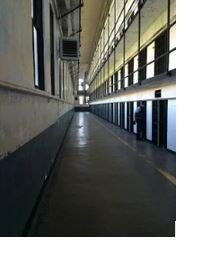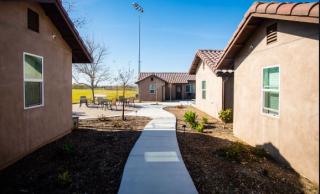What no Trump stimulus means for California schools, unemployment and more
Publication: CalMatters
Last week, as federal stimulus talks crumbled and California’s unemployment system faltered again, Tracy Greer packed her car with recyclables and hoped the cash would pay for groceries.
Greer, 48, is an accountant by training who was furloughed from her job as a restaurant server in the high desert town of Phelan just as the pandemic hit. It took three months to get her first unemployment check, and with no back-to-work date in sight, Greer and many of the other 2.1 million jobless Californians have been hoping for a reprieve with a second round of federal stimulus money.
“Right now, they’re playing with fire. They’re making it so people are going to be homeless.”
It’s a hope that has dwindled as President Donald Trump last week instructed his party “to stop negotiating until after the election when, immediately after I win, we will pass a major Stimulus Bill.”
...
But unlike a nation that can go into debt, California can’t print money and is required to balance its $202 billion annual budget. This constraint is why relief from Washington is crucial. Without federal stimulus money, high-tax California will be staring down a projected $8.7 billion deficit next year and have to either raise taxes or cut services that overwhelmingly benefit the poor. Already, there has been friction between Newsom and state finance officials over how to spend the $9.5 billion allocated to California by the federal CARES Act this spring.
Assemblymember Phil Ting said the state is still evaluating a new tax voucher system to generate revenue and reduce future cuts, with a report from the Department of Finance due in March. In the meantime, Weinberg said it’s also possible to make cheap-but-controversial regulatory changes to expedite economic recovery, like easing housing permitting requirements or immediately spending existing infrastructure funds.
....
 With the spread of coronavirus still a concern in California prisons, the state will now be able to take steps to ease overcrowding, while also expanding opportunities for second chances without increased risk to public safety. The Governor today signed AB 3234 by Assemblymember Phil Ting (D-San Francisco), giving judges the discretion to place first-time misdemeanor offenders in a diversion program. It also makes changes to the elderly parole program.
With the spread of coronavirus still a concern in California prisons, the state will now be able to take steps to ease overcrowding, while also expanding opportunities for second chances without increased risk to public safety. The Governor today signed AB 3234 by Assemblymember Phil Ting (D-San Francisco), giving judges the discretion to place first-time misdemeanor offenders in a diversion program. It also makes changes to the elderly parole program. To ensure California maximizes housing within its residential areas, homeowners associations (HOAs) will no longer be able to prohibit rentals under a bill signed by the Governor today. AB 3182 by Assemblymember Phil Ting (D-San Francisco) closes important loopholes that have enabled subdivisions and condominium complexes to shut out tenants.
To ensure California maximizes housing within its residential areas, homeowners associations (HOAs) will no longer be able to prohibit rentals under a bill signed by the Governor today. AB 3182 by Assemblymember Phil Ting (D-San Francisco) closes important loopholes that have enabled subdivisions and condominium complexes to shut out tenants.